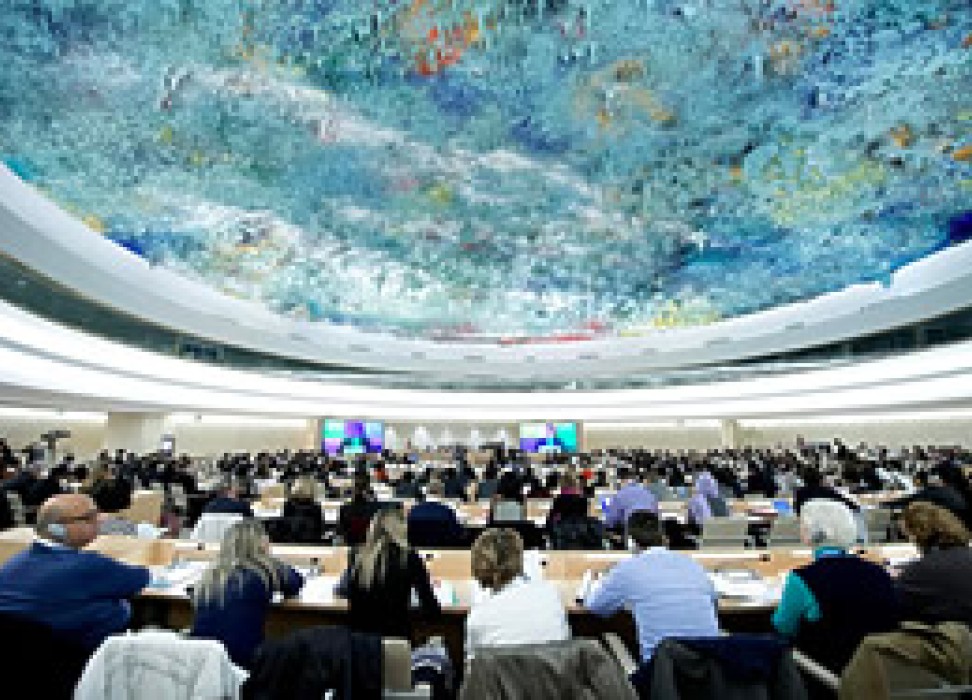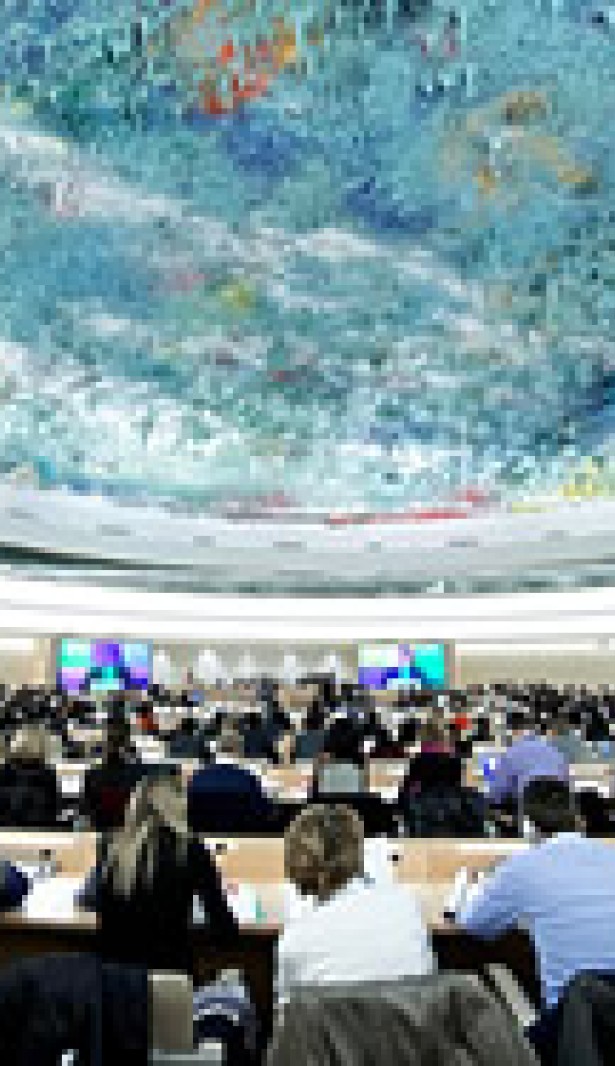Your voice counts: Human Rights Day 2012 promotes participation in public life
11 December 2012

“Today, I salute all those who have suffered so much seeking what is rightfully theirs—and all those people in other countries who are also saying we have a voice, we have our rights and we want to participate in the way our societies and economies are run,” says UN Human Rights Chief Navi Pillay in her opening address to the UN Human Rights Office Human Rights Day event in Geneva.
Every year on 10 December, Human Rights Day commemorates the adoption of the Universal Declaration of Human Rights. This year’s event in Geneva highlighted the 2012 theme of inclusion and the right to participate in public life with a panel discussion, keynote speeches, musical performances, and the launch of the UN Human Rights Office Arabic website.
The event was also an opportunity to show the new promotional video based on the 2012 slogan, My voice, my right. My voice counts, which included among others, Desmond Tutu, the former Archbishop of South Africa; Olympic gold medallist, Jamaican Usain Bolt; and Wu Qing, a Chinese human rights defender.
“These rights are supposed to apply to everyone. No one should be excluded from any one of them because they are female, belong to a minority, or worship a certain religion; or because they are gay, have a disability, have particular beliefs, are migrants or belong to a certain racial or ethnic group. We should all have a voice that counts in our societies,” Pillay said.
Laura Dupuy Lasserre, President of the Human Rights Council, said in her welcome remarks that the right to participate is enshrined in the Universal Declaration of Human Rights. She said that when her country of Uruguay lived under a dictatorship there was no space for people to be heard. “This is why I encourage all people to claim their rights and accept no undue restrictions on their participation in the direction of public affairs, whether political or socio-economic,” she said.
In a video statement taped especially for the event, Jimmy Carter, former President of the United States, said that any global movement for human rights must be inclusive. “When governments are not responsive to the legitimate aspirations of people affected by oppressive policies, trust in government is eroded. If we have learned anything from the Arab awakening it is that today's human rights defenders may be tomorrow's revolutionaries,” Carter said.
“As a former head of state, I know it is not always pleasant to be criticized, but it is healthy and necessary to make progress in every society,” he said.
Aung San Suu Kyi, the opposition member of the Myanmar Parliament and leader of the National League for Democracy, presented her keynote remarks via satellite from Myanmar and said that being engaged and included in public life must be based on the desire to act together.
Pillay stressed the continuous struggle for women, especially regarding the right to participate in public life. “Women, for example, make up more than half the world’s population, but are still facing widespread discrimination. Women have now, finally, won the right to vote almost everywhere, but they are still hugely under-represented in parliaments, in senior government posts and in corporate boardrooms,” Pillay said.
Souhayr Belhassen, the President of the International Federation for Human Rights, is a Tunisian activist and journalist who has covered human rights issues with an emphasis on women’s rights, said that the revolution has given hope to her region. She has seen women become more independent, higher turnouts of voters in elections, and more young people mobilizing to claim their rights. “The role of social media in the Arab Spring was a significant one. We saw young people speak out. They are the ones who held the banners.”
Exclusion from participation in the public lives of their communities was an experience common to most of the panellists all of whom came from very different backgrounds. Romel Joseph, a blind Haitian musician, said, “It is not easy for the handicapped to be accepted in Haiti. There are many people who will stop you from getting to where you want to go. If you work hard to achieve your goals, you can become a role model for others who are handicapped.”
Valeriu Nicolae, a Roma and founder of the Policy Center for Roma and Minorities, said that Roma’s are rarely given a platform to speak on behalf of their community. For instance, at a Roma-related conference organized by the European Commission, Nicolae explained, there was only one out of five experts with hands-on experience of Roma issues.
Francis Kariuki, an administrative chief of the Lanet Umoja village in Kenya, is famous for using Twitter as a way of encouraging participation and inclusion in his village. He was looking for a way to communicate information that could be instantaneous, simple, and effective. “Information is power,” Kariuki said. “People who are informed know how to work together.”
11 December 2012

